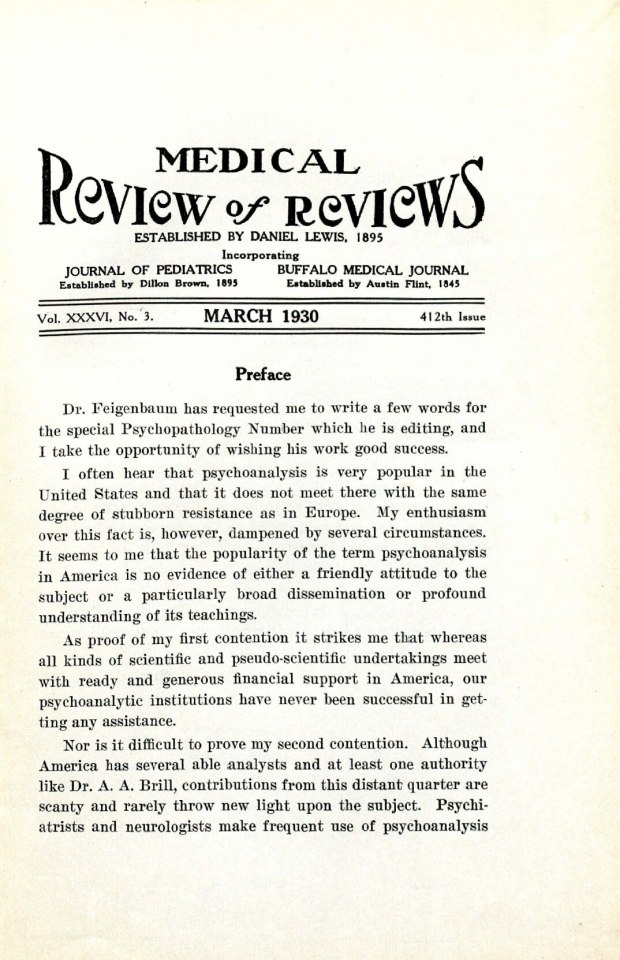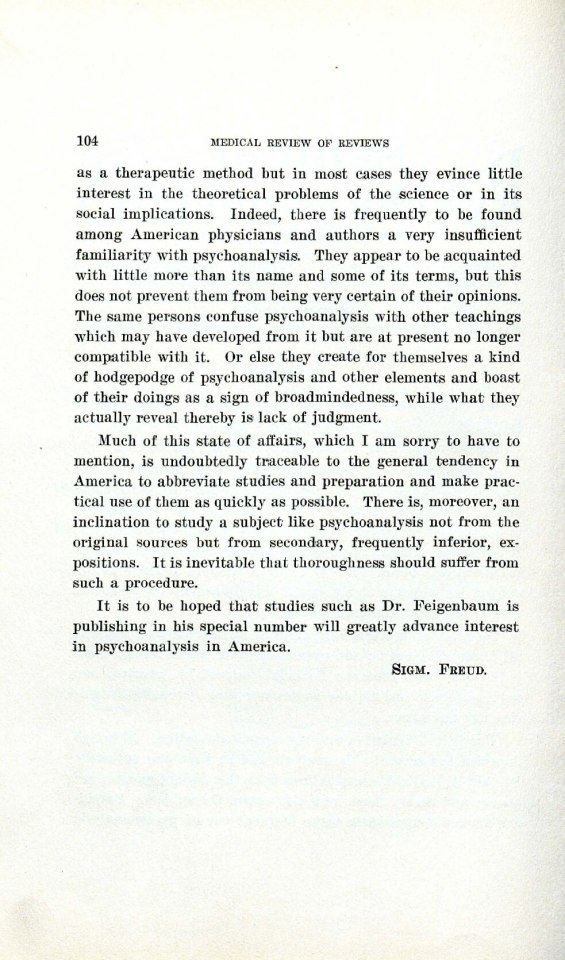S.
M E D I C A L
R E V I E W o r R E V I E W SIncorporating
J O U R N A L O F P E D I A T R I C S
Established by Dillon Brown, 1895B U F F A L O M E D I C A L J O U R N A L
Established by Austin Flint, 1845
V o l . X X X V I . N o . 3 . M A R C H 1 9 3 0 4 1 2 t h I s s u e
Preface
Dr. Feigenbaum has requested me to write a few words for
the special Psychopathology Number which he is editing, and
I take the opportunity of wishing his work good success.I often hear that psychoanalysis is very popular in the
United States and that it does not meet there with the same
degree of stubborn resistance as in Europe. My enthusiasm
over this fact is, however, dampened by several circumstances.
It seems to me that the popularity of the term psychoanalysis
in America is no evidence of either a friendly attitude to the
subject or a particularly broad dissemination or profound
understanding of its teachings.As proof of my first contention it strikes me that whereas
all kinds of scientific and pseudo-scientific undertakings meet
with ready and generous financial support in America, our
psychoanalytic institutions have never been successful in get-
ting any assistance.Nor is it difficult to prove my second contention. Although
America has several able analysts and at least one authority
like Dr. A. A. Brill, contributions from this distant quarter are
scanty and rarely throw new light upon the subject. Psychi-
atrists and neurologists make frequent use of psychoanalysisS.
104 M E D I C A L R E V I E W O F R E V I E W S
as a therapeutic method but in most cases they evince little
interest in the theoretical problems of the science or in its
social implications. Indeed, there is frequently to be found
among American physicians and authors a very insufficient
familiarity with psychoanalysis. They appear to be acquainted
with little more than its name and some of its terms, but this
does not prevent them from being very certain of their opinions.
The same persons confuse psychoanalysis with other teachings
which may have developed from it but are at present no longer
compatible with it. Or else they create for themselves a kind
of hodgepodge of psychoanalysis and other elements and boast
of their doings as a sign of broadmindedness, while what they
actually reveal thereby is lack of judgment.Much of this state of affairs, which I am sorry to have to
mention, is undoubtedly traceable to the general tendency in
America to abbreviate studies and preparation and make prac-
tical use of them as quickly as possible. There is, moreover, an
inclination to study a subject like psychoanalysis not from the
original sources but from secondary, frequently inferior, ex-
positions. It is inevitable that thoroughness should suffer from
such a procedure.It is to be hoped that studies such as Dr. Feigenbaum is
publishing in his special number will greatly advance interest
in psychoanalysis in America.S I G M . F R E U D .
1930c
103
–104


